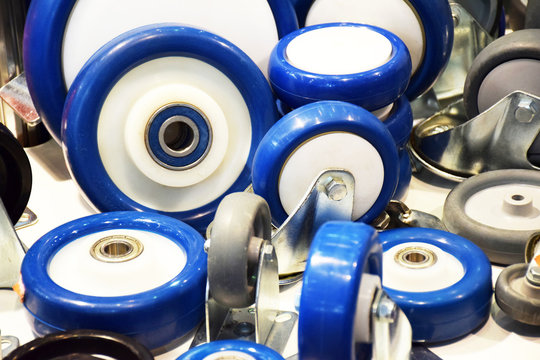Castor wheels play a massive role in our daily lives, especially if you work with transporting or moving heavy objects from one place to another. If you are looking to install industrial castor wheels on a piece of furniture or a cart, it’s natural that you want to install the best matching castor wheels for the job. Moreover, you don’t want to buy a cheap set of casters to later find out that they are damaging your floor or that they wear out too soon. In the industry sector, castor wheels are used extensively to assist in the smooth movement of heavy machinery, furniture, and other items. This is why it’s important to know how to choose a castor wheel.
What application do you need casters for?
First, decide on what type of equipment you will install the casters on. This might sound a little too simple, but it’s the most important question. The answer to this question will help you to determine several things about the industrial castor wheel that suits your requirements. You will be able to decide whether you need a light-duty, medium-duty, or heavy-duty castor depending on the total weight inserted by the equipment onto the castors. Similarly, you will be able to become more thoughtful about the environment in which you will use the castors. Knowing the application details will help you to understand the requirement better.
Design of industrial castor wheels
Castor wheels have an inner base, an outer thread, and a rotating bearing. Here, the straight wheel bearing comprises alternating both small and large rollers. It is important to lubricate these rollers periodically. Some wheels have tapered bearings. This tapered bearing type is perfect for rolling heavy equipment. However, precision ball bearings have become popular recently because they are sealed and don’t need to be lubricated every few months.
How castor wheels play on different floors?
When talking about castors, their relationship with floors can be grouped based on the nature of the floor finish. This generally refers to the nature and the type of material used to create the floor, such as concrete, hardwood, tile, and carpet. On the other hand, the nature of the castor wheel material is also important. This is because the weight that is put on the castor wheels tends to create friction between the wheel and the floor. Some of the most popular castor wheel materials are polyurethane, aluminum, nylon, iron, stainless steel, rubber, and pneumatics.
Castor wheel size
When you are choosing the most appropriate castor wheel, just remember that the bigger the wheel size, the easier it is to move. Here, the logic is that wheel size is relative to the task at hand. Bigger wheels can move heavy loads faster, and cover more ground. You can use small and narrow castors whenever you need to lift something lighter. Since small castor wheels offer less surface area on the wheel to support the load, it will stress the wheel when you apply heavyweight to it.
Who can help you choose the most suitable industrial castor wheel?
Supo Castor can help you! If you are confused about making the right choice from a wider variety of castor wheels, just consult an expert. Experts at Supo Castor can help you determine the answers to your questions and help you select the industrial castor wheels that suit your requirements.
